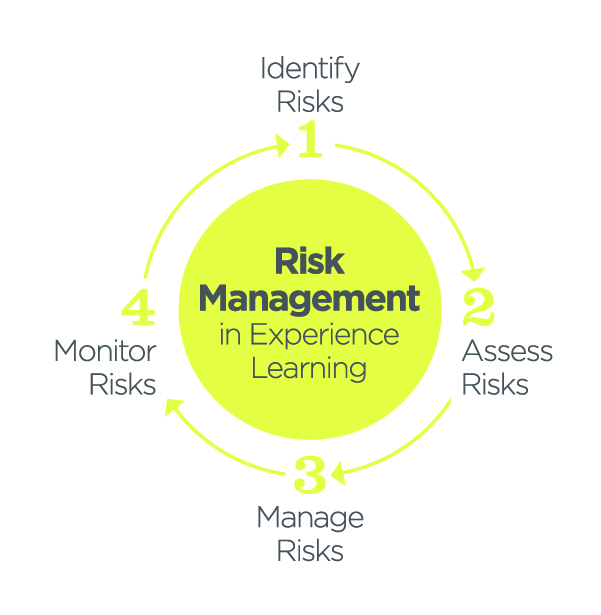It is important for experiential learning opportunities to be safe, robust, and satisfying for all university stakeholders. The goal of risk management in Experience Learning is to equip the faculty and staff leading these programs to manage risks, reduce liability to the University, and optimize the student learning environment.
It is impossible to guarantee that any experience will be free from interruptions, uncertainty, or harm. This is true of traditional classroom settings, as well as experiential learning contexts. Therefore, as we identify new avenues for students to engage in real-world problem solving and encourage them to meet needs in the larger community, we endeavor to incorporate risk management best practices into this initiative by proactively identifying, assessing, managing, and monitoring the risks present in these experiential opportunities. To this end, we have created a Risk Management Handbook that introduces faculty and staff to information, principles, and best practices that can empower them to effectively manage the risks inherent in experiential learning opportunities. Please visit the “Risk Management Resources” tab if you would like to download a copy of the Risk Management Handbook.
To this end, we have created a Risk Management Handbook that introduces faculty and staff to information, principles, and best practices that can empower them to effectively manage the risks inherent in experiential learning opportunities. Please visit the “Risk Management Resources” tab if you would like to download a copy of the Risk Management Handbook.
